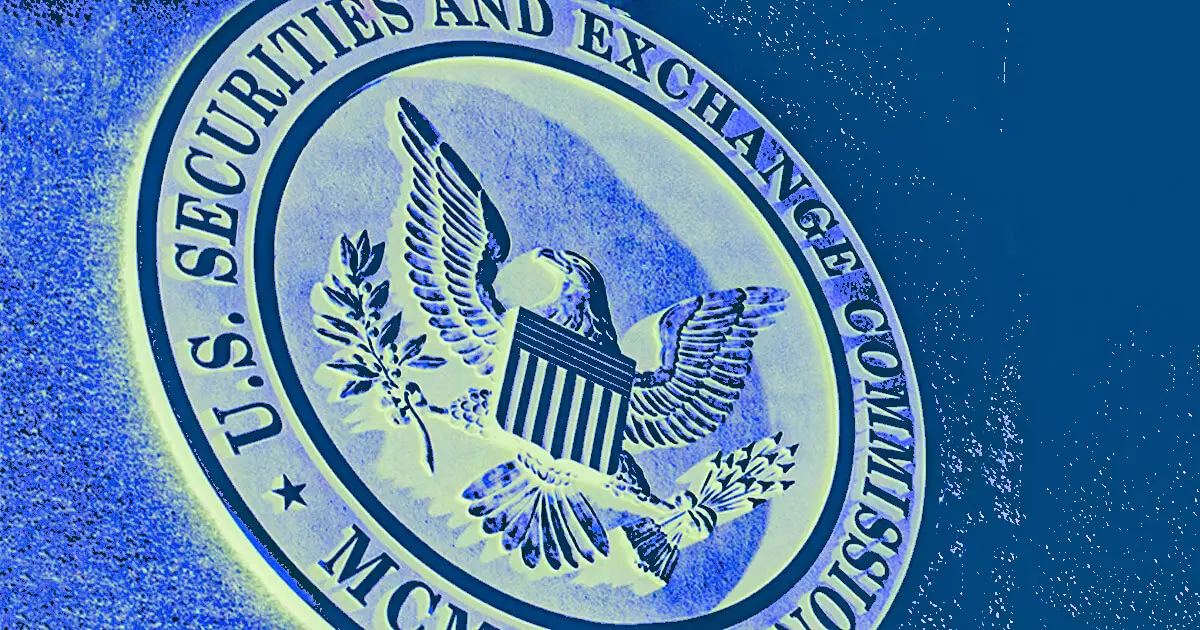In a candid assessment, SEC Commissioner Mark Uyeda voiced significant concerns regarding the agency’s handling of cryptocurrency regulation during a recent appearance on the Fox Business show “Mornings with Maria.” He described the SEC’s strategy as a “disaster for the whole industry,” highlighting a critical flaw in the regulatory framework that has left many crypto companies in a precarious position. The Commissioner’s remarks came in the context of increased enforcement actions against prominent crypto firms, sparking discussions about the broader implications of such regulatory practices.
Uyeda stressed that the SEC has relied heavily on enforcement actions to shape policy, doing so without providing the necessary regulatory clarity that crypto companies desperately need. This approach has led to a chaotic environment, where businesses find themselves grappling with uncertain legal standings. He noted with concern, “We’ve implemented ‘policy through enforcement’ without offering guidance,” which has forced courts to step in and issue rulings that can be inconsistent and confusing. The resulting legal landscape further complicates the operational realities for crypto firms trying to navigate the complexities of securities laws.
The environment of ambiguity has prompted challenges from players within the crypto space, including a notable lawsuit from Crypto.com. This legal action accuses the SEC of overreaching its authority by labeling most crypto tokens as securities, effectively expanding its regulatory grasp without proper mandate. Although Uyeda refrained from commenting on the nuances of this particular case, he acknowledged the urgent need for regulatory clarity concerning digital assets. “There’s a growing frustration with the absence of guidance,” he asserted, encapsulating the sentiments of many stakeholders within the industry.
Uyeda’s critique is part of a larger narrative involving various confrontations between the SEC and leading crypto firms. Notably, Coinbase has taken legal steps against the SEC in a bid to clarify how digital assets should be categorized under existing securities laws. The agency is also currently embroiled in a lawsuit against Ripple Labs, which recently saw the SEC challenge a favorable ruling that deemed XRP sales to retail investors lawful. Such ongoing legal battles highlight rising tensions and dissatisfaction with the SEC’s enforcement methodology.
As the crypto landscape continues to evolve rapidly, Uyeda articulated the necessity of establishing precise regulations. Without articulating clear definitions concerning what constitutes a security in the world of digital currencies, efforts to regulate the industry will remain ineffective. He commented, “You can’t begin to address these issues without first defining what falls under securities laws and what doesn’t.” This statement underscores the essential role clarity plays in fostering a stable and predictable environment for innovation within the crypto sector.
The SEC stands at a crossroads, balancing the need for regulation with the potential to stifle an emerging industry. Uyeda’s insights shed light on the unintended consequences of current regulatory practices, calling for a reinvigorated conversation around the framework governing cryptocurrencies. As lawmakers and industry stakeholders continue to express concern over the agency’s current trajectory, the push for clearer, more actionable guidance becomes increasingly imperative. For the success of both regulators and the innovative spirit of the crypto industry, a collaborative effort towards clarity and understanding is essential.


















